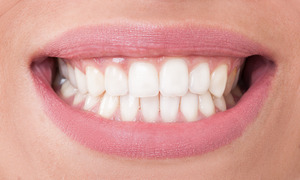
The dental field is constantly moving forward, and researchers are making all kinds of discoveries that could change the future of oral health care. For example, at present, when a tooth is damaged, it is completely incapable of repairing itself. However, recent breakthroughs could be the first step on a path that could ultimately make it possible to regenerate tooth enamel! Your oral surgeon is here with important information about this groundbreaking research.
What is Enamel, and Why Can’t It Heal Itself?
Enamel is the outermost layer of your teeth. It’s the hardest substance in your body, which helps it withstand the daily pressures of biting and chewing. Normally, the enamel helps keep the rest of the tooth safe from decay and infection.
However, enamel does have a weakness: it doesn’t contain any living cells. It therefore lacks the means to heal itself if it becomes broken, decayed, or worn down. As such, dental crowns and other restorations are often required for damaged teeth. In the worst-case scenario, a tooth that is injured badly enough might have to be removed.
How Could Recent Research Ultimately Lead to Regenerating Teeth?
The human body only creates enamel during fetal development and infancy. The enamel is made by special cells called ameloblasts. Said cells are only present in the body during certain stages of development; once they’re gone, so is any natural way of creating enamel.
However, researchers at the University of Washington School of Medicine have recently been able to create organoids (which are artificially grown masses of cells that can mimic organs) that are capable of secreting ameloblasts. This was accomplished by gaining a thorough understanding of the genetic program that leads to enamel production as well as a lot of trial and error.
With the ability to create ameloblasts, researchers hope to eventually reach the point where it’s possible to place “living fillings” by essentially taking the artificially created enamel and applying it to the damaged teeth. Of course, accomplishing this goal will take a lot more study.
It can be mind-boggling to consider that science has advanced far enough that the idea of regenerating teeth may no longer be an impossible thought. Rest assured that you can count on your oral surgeon to keep a close eye on the latest developments to ensure that they’re able to continue bringing you state-of-the-art treatments to protect and restore your oral health.
About the Author
Dr. J. Darrell Steele is a graduate of Baylor College of Dentistry. He holds membership with a number of organizations, such as the American Association of Oral and Maxillofacial Surgeons. He is a strong believer in modern surgery and medicine, and he goes out of his way to utilize the latest technology at his Coppell practice, Steele Oral Surgery. To schedule a consultation with Dr. Steele, visit his website or call (972) 315-3355.







